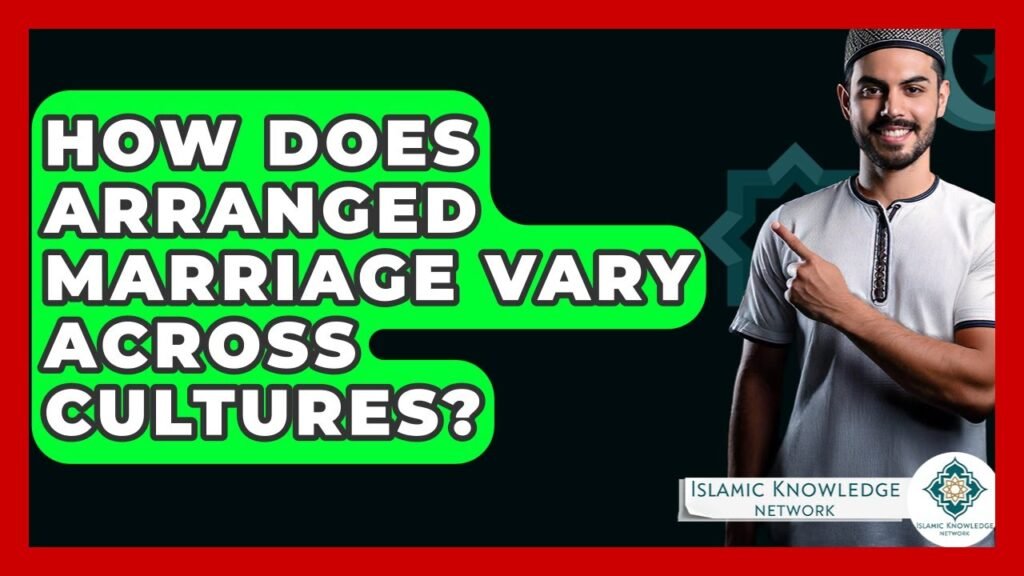You are here to read: How Do Arranged Marriages Differ Across Cultures? – A Thoughtfully Written Guide Offering Spiritual Wisdom and Travel Advice for Every Pilgrim who is going on holy journey of Hajj or Umrah.
Introduction
Arranged marriages have been a longstanding tradition in various cultures worldwide, transcending geographical boundaries and historical contexts. While the practice is often associated with specific cultures, particularly in the Middle East and South Asia, the nuances of arranged marriages can vary significantly from one society to another. In many Islamic communities, these unions are not merely a personal choice; they intertwine familial obligations, social ties, and cultural beliefs. This exploration delves into the diverse practices surrounding arranged marriages, shedding light on how they function within the frameworks of different cultures, enhancing our understanding of both traditional values and modern dynamics.
At Airlink Hajj and Umrah, we recognize the significance of various cultural practices, including arranged marriages, in shaping community life. Just as the rituals of Hajj and Umrah are steeped in cultural significance and individual commitment, so too are the arrangements that govern marital unions in many societies. Our blog provides timely updates and insights into Hajj and Umrah, highlighting the intersection of faith, tradition, and contemporary life. As we navigate through the complexities of arranged marriages across cultures, we invite you to explore how these traditions can coexist with the ever-evolving narratives of modern relationships.
How Do Arranged Marriages Differ Across Cultures?
Arranged marriages, while a common practice in many cultures, vary significantly in their approach and significance. In South Asian countries like India and Pakistan, families often play a crucial role in selecting a partner based on factors such as caste, religion, and socio-economic status. These arrangements emphasize familial approval and societal norms, ensuring that the match aligns with cultural expectations.
In contrast, Middle Eastern cultures also practice arranged marriages, but they may incorporate a more modern outlook where prospective partners have a say in the final decision. This blend of tradition and individual preference aims to maintain family values while allowing personal choice. For instance, in societies like Saudi Arabia, where family lineage and tribal affiliations are important, these aspects are considered pivotal while ensuring compatibility between the couples.
Furthermore, in some African cultures, arranged marriages might involve elaborate engagement ceremonies and negotiations between families. While the essence remains focused on community ties, the celebration of love and unity often enhances the significance of the partnership.
At Airlink Hajj and Umrah, we provide authentic updates on Hajj and Umrah, helping you connect cultural practices like arranged marriages to the rich tapestry of global traditions. Whether you’re planning a pilgrimage or exploring cultural nuances, our blog keeps you informed and engaged.
You're at the middle of this awesome post at AirlinkHajjandUmrah.com through: How Do Arranged Marriages Differ Across Cultures?. Keep reading, it gets better!
FAQ on How Do Arranged Marriages Differ Across Cultures?
FAQs on Arranged Marriages Across Cultures
1. What is an arranged marriage?
An arranged marriage is a union initiated by families or matchmakers, where the preferences and values of both parties are considered, but individual choice may vary by culture.
2. How do cultural beliefs influence arranged marriages?
Cultural beliefs shape the expectations, processes, and acceptance of arranged marriages, impacting factors like gender roles, family involvement, and the importance of social status.
3. Are arranged marriages successful compared to love marriages?
Research indicates mixed outcomes, with success often tied to cultural acceptance, family support, and compatibility, regardless of whether the marriage was arranged or based on love.
4. What role do parents play in different cultures regarding arranged marriages?
In some cultures, parents are heavily involved in selecting partners, while in others, they might offer suggestions but give couples more autonomy in the decision-making process.
5. How have modern influences changed arranged marriages?
Modern influences such as globalization, education, and technology have led to evolving practices, with some arranged marriages now integrating personal choice and dating processes.
That wraps up How Do Arranged Marriages Differ Across Cultures?. Thanks for sticking with us till here! Share this: How Do Arranged Marriages Differ Across Cultures? with your friends.
Check our homepage at Air Link Hajj & Umrah for more awesome updates.
Some interesting posts are: 1: Umrah Mubarak, 2: When is Umrah closed 2026?, 3: When does Umrah start after Hajj 2026?
Mushu, an experienced Saudi Arabia traveler and writer, shares insightful tips and spiritual reflections to enhance Hajj and Umrah journeys for fellow pilgrims. He has been to Makkah and Madina from 2016 to 2023 many times and his posts will reflect this.







